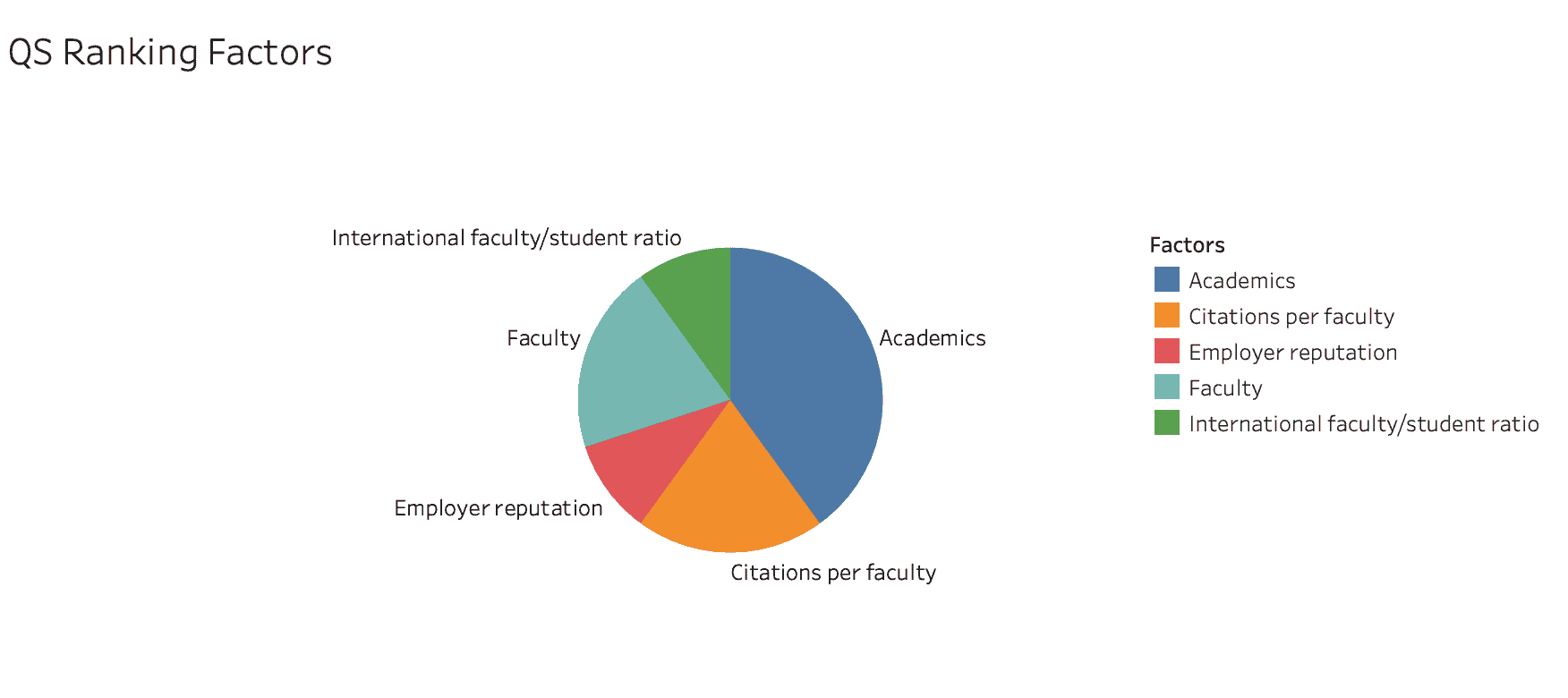Truth About QS Ranking: Is It the Best Way to Judge University Quality?
As someone who is planning on flying elsewhere after high school to earn an undergraduate degree, it’s not enough that you check out just about any college ranking. You should take a look at something that pits global schools against one another. And one well-known site that ranks international institutions annually is QS Ranking.
When it comes to rankings of global colleges and universities, the one by QS World University Ranking is considered the most accurate and reliable. In fact, it’s approved by the International Ranking Expert Group (IREG). QS Ranking is also said to be the most accessed international ranking per year.
Should you build a college list guided by QS? Or is it a much better idea to count on another college ranker?
In this post, I will talk about the system used by QS Ranking, which used to be known as Times Higher Education – QS World University Ranking until 2009, so that you can have an idea of the factors it takes into account. Knowing them allows you to determine whether or not QS’ preference aligns with your own.

Methodology Used by QS Ranking Based on 5 Factors
The methodology used by QS World University Ranking consists of 5 key ranking factors, each one with different weightings. Academic reputation, which is obtained by surveying academics worldwide, has the most weight (40%). Besides academics, employers are surveyed, too, but for a different indicator.
Each college ranking site, whether ranking domestic or international institutions of higher education or both, has its own signature methodology in determining the positions of considered schools.
It’s for this reason why rankings can be subjective and thus should be taken with a grain of salt.
Needless to say, QS Ranking has its own methodology. As a matter of fact, it’s the same methodology used when it was still collaborating with THE. When the two separated, QS decided to stick with the tried-and-tested method of ranking international universities. On the other hand, THE chose to come up with something new.
In scoring institutions by means of the 5 primary ranking factors that make up its methodology, QS turns to various sources. The college ranking site, as mentioned above, surveys thousands of academics and employers worldwide. Pieces of information are also pulled from Scopus and the International Research Network (IRN).
The following are the 5 primary ranking factors that make up the methodology QS uses:
1. Academic reputation (40%)
Just like what was mentioned earlier, academic reputation is the QS ranking factor with the most weight.
And in order to know which global colleges and universities should get high rankings, survey sheets are sent to thousands and thousands of individuals in the higher education realm who teach and research.
Respondents are asked to name up to 10 local institutions and as many as 30 international schools they believe show excellence in the world of academia.
2. Faculty/student ratio (20%)
Learning can be more effective and efficient if professors can devote enough of their attention to each and every student in the class.
It’s exactly because of this why many institutions of higher education take pride in the fact that they have low student-to-faculty ratios and small class sizes, too.
Since a more personalized and collaborative learning environment is an advantage, it’s no wonder why QS World University Ranking deems the number of teachers a school can provide to its students an important parameter.
3. Citations per faculty (20%)
Simply put, the citations per faculty ranking factor takes into account the number of times papers produced by a particular institution’s faculty members are cited by different publications.
So, in other words, the more they are referenced, the higher the quantity and the better the reliability of all academic writings a school has.
To give colleges and universities being surveyed by QS for their annual rankings enough time to prove their worth, the ranking site considers citations made within a 5-year window period.
4. Employer reputation (10%)
For most college students, the top reason for them wanting to earn an undergraduate degree is to create job security.
And because the employment rate is the highest for individuals with a bachelor’s degree or higher, it isn’t surprising that the employability of an institution’s graduates is a part of QS Ranking’s methodology.
In ranking schools, QS asks thousands of employers all over the planet to name a maximum of 10 local universities and a maximum of 30 ones they believe tend to produce some of the most employable graduates.
5. International faculty/student ratio (10%)
Naturally, some of the best global colleges and universities can attract students coming from all 4 corners of the world. It’s due to this exactly why QS Ranking takes into account the ratios of international faculty members to domestic faculty members and international students to domestic students, each one with a 5% weight.
QS World University Ranking obtains data directly from universities when scoring them based on the parameters mentioned. The college ranking site then verifies them against government data statistics, where available.
Common Criticisms on QS Ranking
Some of the most common criticisms on QS World University Ranking include it’s biased toward large and English-speaking institutions and has preference for those that are strong in medicine and life sciences. Many are also concerned that too much emphasis on peer review can contaminate rankings.
It’s true that many individuals who are in the process of building a college list count on QS Ranking, which is why it’s considered the most visited international college ranking site across the globe.
Still, there are many critics questioning the accuracy and reliability of the well-known college ranker.
Academic reputation, as mentioned earlier, is the ranking factor used by QS with the most weight. And in scoring schools based on such factor alone, the college ranking site conducts a peer-review survey.
This, according to some of QS Rankings’ critics, can cause the results to be highly subjective and biased.
But QS makes it clear that the respondents, which consist of nearly 75,000 global academics, cannot nominate their own institutions, thus keeping prejudiced results at bay.
Another common criticism QS Ranking gets is that it prefers larger institutions over smaller ones.
The ranking site shrugs off the accusation by saying that all the hard data indicators used are adjusted for size. It stresses, too, that it produces its surveys in an array of languages, which dispels speculations on bias toward English-speaking schools.
QS Ranking is also criticized for favoring institutions that specialize in health and life sciences.
However, the college ranking site explains that peer-review surveys are normalized across the following broad subject areas in order to give each and every school an equal fighting chance:
- Arts and humanities
- IT and engineering
- Life sciences
- Natural sciences
- Social sciences
Just Before You Check Out College Rankings by QS
It’s true that QS World University Ranking is one of the most trusted by degree-seeking students. This is especially true for those who are planning on studying abroad since its methodology includes the ability of a particular institution of higher education to attract international students.
Despite this, the annual rankings of QS should only be used as a guide in building a college list, facilitating the process instead of heavily influencing it. After all, like other college rankings, the one by QS has subjective elements.
Related Questions
Which is more accurate, QS World University Ranking or THE?
In the past, QS Ranking and THE collaborated in ranking international schools. Since they have parted ways, the general consensus is that QS is more accurate and reliable, especially when ranking institutions that are not too old, since it’s using a proven methodology.
Does QS Ranking modify its methodology or ranking factors used?
According to QS Ranking itself, it reviews the methodology it uses every year as well as conducts any adjustment or addition to its metrics through a formal process. For this, the college ranking site consults its Global Academic Advisory Board, which consists of 40 global academics.
Disclaimer: The views and opinions expressed in this article are those of the authors and do not necessarily represent those of the College Reality Check.





